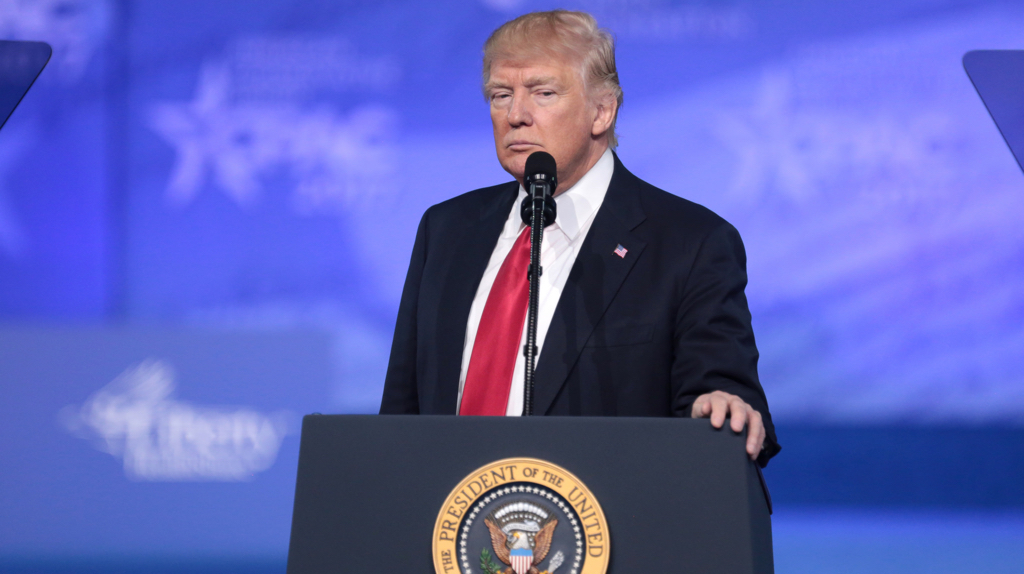Donald Trump hates his job.
“I loved my previous life. I had so many things going,” Trump told Reuters this week as he neared the 100-day mark of his presidency. “This is more work than in my previous life. I thought it would be easier.”
It’s easy to see why Trump, a 70-year-old who spent his lifetime in real estate and product marketing, might be dissatisfied with his first taste of public office. The rigidity with which he ran his family company has not translated well to government. His attempts at claiming significant achievements early in his term have fallen flat. And while he continues to be embraced by the minority of people who voted for him—only 2 percent of Trump’s voters regret their choice last November, according to a Washington Post poll (and never-ending stream of newspaper articles attempting to chronicle white working-class anxieties)—he is unloved by far more.
In January, I wrote that Trump would not be the end of Washington, that the city had survived hostile executive branches and congresses before, and that its residents are far more resilient than its antagonists think. I’m feeling pretty solid about that prediction.
To be sure, we are barely 7 percent of the way through a four-year presidential term, and Trump’s been able to do some damage. His executive orders have weakened workplace protections for LGBT individuals, made it more difficult to obtain a home loan, and opened public lands to mining. Many of his cabinet officials, like Attorney General Jeff Sessions, are openly intent on erasing their predecessors’ accomplishments; others, like Secretary of State Rex Tillerson, are as inexperienced at governing as their boss. Trump’s ethical messes are too many enumerate, and his closest advisers continue to be his favorite child and her husband.
The few things Trump’s White House has actually accomplished would most likely have also been carried out by a generic Republican president. Nearly half of the bills he’s signed into law are congressional disapprovals of Obama-era regulations. He nominated Neil Gorsuch for the Supreme Court, not Judge Judy. But most of Trump’s campaign-trail promises have failed: Two executive orders banning immigrants from majority-Muslim countries have been blocked in federal courts. Rushed attempts to repeal the Affordable Care Act have fizzled. An impulsive withdrawal from NAFTA was avoided because Agriculture Secretary Sonny Perdue showed Trump a map of US farming communities. When Trump threatened to let the government shut down if Congress didn’t start funding his precious border wall, the President blinked first.
Aside from a few White House trappings—like sitting in the cab of a tractor-trailer or a button that reminds aides that he’s thirsty for a Coke—it’s painfully visible how uncomfortable Trump is in his new life. Puttering around the White House alone, he obsesses over cable news and fumes into Twitter, amplifying a stream of accusations, half-truths, and bald-faced lies. He retreats to his Mar-a-Lago estate in Florida whenever possible. His only outings around Washington have been to his hotel on Pennsylvania Avenue or his golf course in Sterling.
But most telling is Trump’s comment to Reuters about how hard his new gig is. Most presidents have bristled about the job in some way. Barack Obama often talked about being stuck in a White House “bubble.” George W. Bush escaped to his Texas ranch whenever possible. But neither of Trump’s recent predecessors publicly expressed surprise at the fact that being president of the United States is a tough order. Obama kept a plaque on his desk that read “Hard things are hard”; Bush made the “hard work” of his first term a selling point in his 2004 re-election campaign.
While Trump’s enthusiasm may be withering, the opposition he’s encountered from his new environs hasn’t shown any sign of letting up. Although Trump’s election can be attributed to some Americans’ loss of faith in institutions like government, academia, and media, his inauguration uncorked others’ impassioned defenses of those things. The American Civil Liberties Union busted through fundraising records after defending targets of Trump’s first Muslim ban; there’s a crowd-funding campaign that buys pizza for newsrooms; Washington hosted a “March for Science“; and with Trump’s approval rating tanking as he tries to pull apart government, a record 57 percent of people polled say government should be more active, not less.
The President came here on a mission to “drain the swamp,” but—to borrow from a Soviet-born comedian—it seems like the swamp has drained him.



















